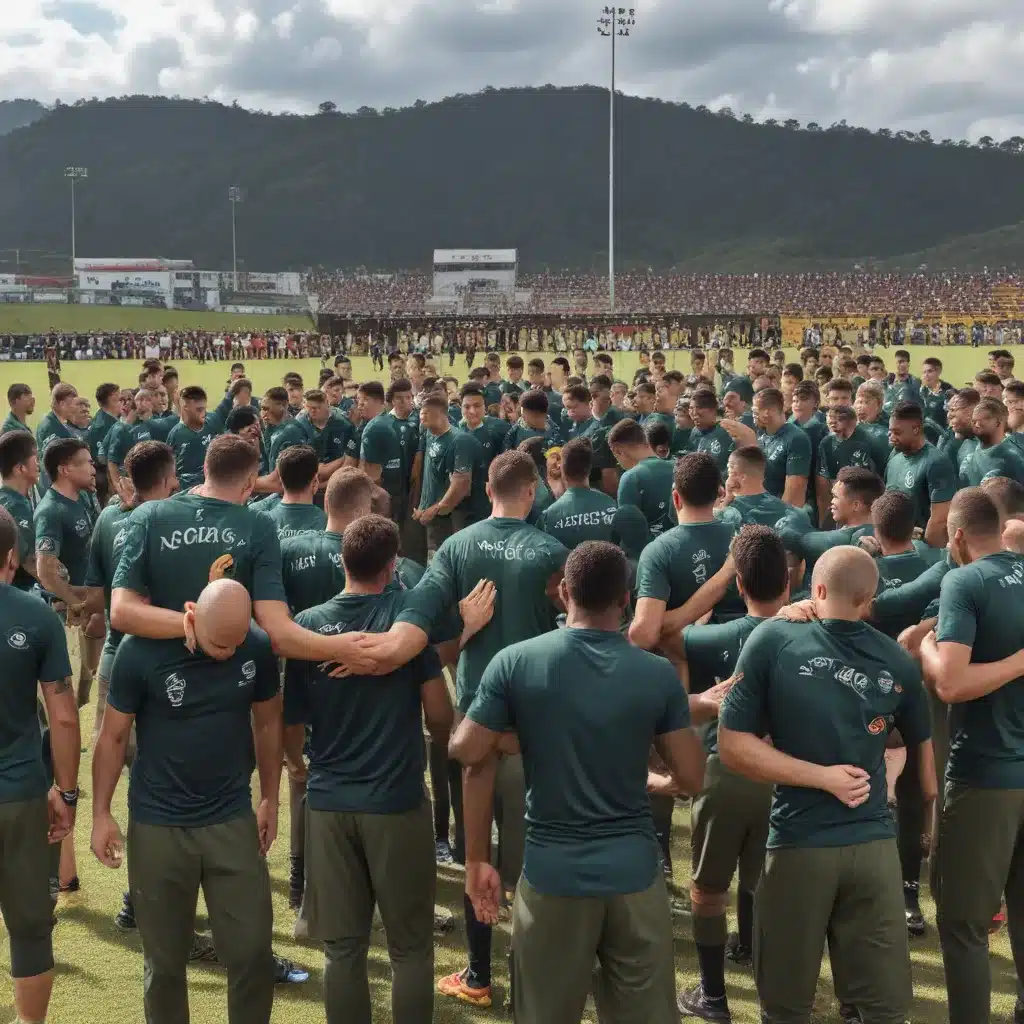
Tactical Trends in the Brazilian Campeonato: The Emergence of Specialized Tactical Coaching Certification and Continuous Education
The Brazilian Campeonato, colloquially known as the Brasileirão, has long been hailed as one of the most captivating and unpredictable domestic football leagues in the world. From the flamboyant attacking flair of clubs like Flamengo and Corinthians to the tactical rigour of Atlético Mineiro and Fluminense, the evolution of playing styles and coaching philosophies has been a constant source of fascination for football enthusiasts.
The Role of Specialized Tactical Coaching Certification
At the heart of this tactical revolution sweeping through the Brasileirão has been the increasing emphasis on specialized coaching education and continuous professional development. Gone are the days when the touchline was the sole domain of charismatic managers relying on intuition and experience. Today, the modern Brazilian football coach is a highly trained tactician, equipped with the latest analytical tools and a deep understanding of the game’s nuances.
The emergence of dedicated tactical coaching certification programs has been a game-changer in the Brazilian game. Institutions like the Brazilian Football Confederation (CBF) and leading universities have developed comprehensive curriculums that delve into the intricacies of positional play, pressing schemes, set-piece routines, and the art of in-game adjustments. These programs not only provide a robust theoretical foundation but also offer hands-on training, allowing aspiring coaches to hone their skills on the training pitch and in the analysis room.
Continuous Education in Brazilian Football
Alongside the specialized certification programs, the Brazilian football ecosystem has embraced a culture of continuous education and professional development. Coaches at all levels, from the youth academies to the top-flight Brasileirão, are expected to regularly attend workshops, seminars, and coaching clinics to stay ahead of the curve.
These events, often led by renowned tacticians and international experts, serve as platforms for the exchange of ideas and the cross-pollination of coaching philosophies. Brazilians have long been known for their adaptability and willingness to incorporate global influences, and this mentality is particularly evident in the tactical evolution of the domestic game.
Tactical Innovations in the Campeonato
The impact of this tactical revolution is palpable on the field of play. Gone are the days of the traditional Brazilian 4-2-3-1 formation and the reliance on individual brilliance. Instead, we’ve witnessed the emergence of highly specialized tactical approaches, each tailored to the strengths and weaknesses of the respective teams.
The rise of possession-based, positional play has been a particularly notable trend, with clubs like Fluminense and Atlético Mineiro pioneering intricate passing patterns and fluid rotations to unlock opposition defences. Defensive organization has also undergone a transformation, with pressing schemes and zonal marking becoming increasingly prevalent as coaches seek to regain possession high up the pitch.
The Impact of Tactical Coaching on Player Development
The influence of this tactical evolution extends beyond the senior level, with youth academies across Brazil incorporating specialized coaching methodologies into their training programs. Young players are now being exposed to the nuances of tactical decision-making from an early age, ensuring that they are better equipped to navigate the demands of the modern game.
This emphasis on tactical education has had a profound impact on the development of Brazilian talent, with a new generation of players emerging who possess a deeper understanding of the game’s tactical intricacies. The likes of Vinícius Júnior, Lucas Paquetá, and Antony have all benefited from this holistic approach to player development, seamlessly transitioning from the youth ranks to the senior level with a well-rounded tactical skill set.
Tactical Analysis of Campeonato Teams
A closer examination of the tactical trends in the Brasileirão reveals the sheer diversity of approaches employed by the league’s clubs. While some teams have embraced a high-pressing, counter-attacking style, others have opted for a more possession-based, patient approach, patiently building from the back and exploiting the width of the pitch.
Defensive organization has also become a key area of focus, with teams deploying intricate zonal marking systems and choreographed pressing traps to disrupt the opposition’s rhythm. Set-piece routines, once an afterthought, have now become a vital part of the tactical arsenal, with teams investing significant time and resources into developing bespoke routines to unlock stubborn defences.
The Influence of International Coaching Philosophies
The influx of international coaching talent into the Brazilian game has also played a significant role in the tactical evolution of the Brasileirão. Managers from Europe, South America, and beyond have brought their own unique philosophies and methodologies, challenging the traditional Brazilian approach and introducing new ways of thinking about the game.
This cross-pollination of ideas has led to a fascinating blend of playing styles, with some teams embracing the high-octane, gegenpressing tactics of the Bundesliga, while others have looked to the patient, possession-based approach of La Liga. The result is a Brasileirão that is more tactically diverse and unpredictable than ever before, with each club carving out its own distinct identity on the pitch.
The Future of Tactical Coaching in the Campeonato
As the Brasileirão continues to evolve, the role of specialized tactical coaching is only set to grow in importance. The advent of data analytics and performance tracking has already transformed the way coaches approach the game, with teams now relying on a wealth of quantitative and qualitative data to fine-tune their strategies and identify areas for improvement.
The future of tactical coaching in the Brasileirão will undoubtedly be shaped by these technological advancements, as well as the ongoing efforts to nurture the next generation of tactical innovators. By investing in comprehensive coaching education and fostering a culture of continuous learning, the Brazilian football ecosystem is poised to remain at the forefront of the tactical revolution sweeping the global game.
Whether it’s the high-pressing ferocity of Flamengo, the intricate positional play of Atlético Mineiro, or the set-piece mastery of Fluminense, the Brasileirão continues to captivate football enthusiasts around the world with its ever-evolving tactical landscape. As the league’s coaches and players push the boundaries of the game, the future of Brazilian football remains as bright and unpredictable as ever.

